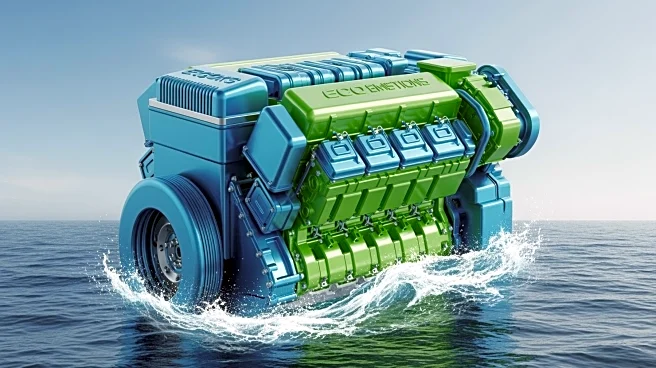What's Happening?
Danish shipping company Maersk is conducting tests on a blend of Brazilian ethanol with methanol and marine diesel for its vessel engines. This initiative is part of Maersk's efforts to decarbonize its operations, which currently contribute to about 3%
of global greenhouse gas emissions. The company, representing 15% of the global maritime shipping market, is testing a blend with 10% ethanol. If successful, this could create a demand for 50 billion liters of ethanol globally per year, compared to Brazil's expected production of 35 billion liters this year. Maersk aims to achieve net-zero emissions by 2040 and has chosen Brazilian ethanol for its tests due to its lower deforestation impact.
Why It's Important?
The tests by Maersk could significantly impact the maritime shipping industry by opening a new market for Brazil's ethanol industry and reducing the sector's carbon footprint. If the industry adopts this fuel mix, it could lead to a substantial increase in global ethanol demand, benefiting Brazilian producers. This move aligns with global efforts to reduce emissions and transition to more sustainable energy sources, potentially influencing other shipping companies to explore similar initiatives.
What's Next?
Maersk plans to complete ethanol blend tests in methanol-powered vessels by October 23, followed by bunker fuel testing. If successful, the company will begin negotiations with major Brazilian ethanol producers, including Raizen, Copersucar, Inpasa, FS, and Atvos. This could lead to broader adoption of ethanol blends in the maritime industry, furthering decarbonization efforts.















